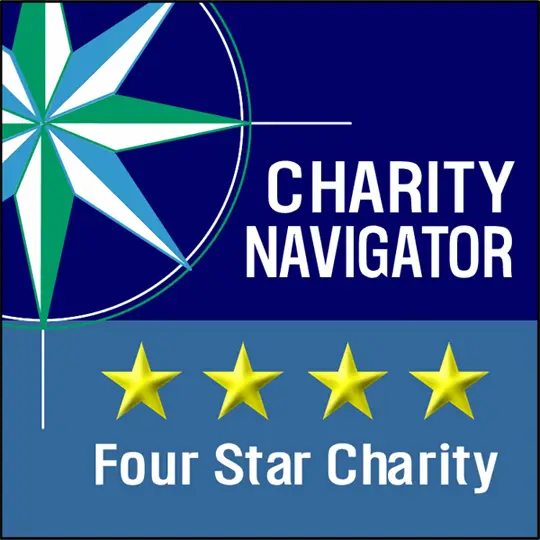Elder Abuse Information
Overview
Every year tens of thousands of elderly Americans are abused by those who are responsible for their care. Elder abuse tends to take place wherever the elderly person lives. Many times this is an institutional setting such as a nursing home or other long term care facility. The abusers may be caregivers and those directly responsible for their care, or they may be family members such as adult children, grandchildren, spouses or partners. Elderly persons are vulnerable to abuse as they are usually frail and less able to stand up for themselves or fight back, if attacked. They may not think clearly, and have varying degrees of dementia, nor do they see or hear as well. They may be lonely and vulnerable, thus making them prey for the unscrupulous con artist or scammer.
Types of Elder Abuse
The Different Types of Abuse: Elder Abuse may take many forms such as intimidation, threats, neglect, and financial fraud. The most common are:
Physical Abuse
Non-accidental, (intentional) use of force resulting in physical pain, injury, or impairment. Such abuse also includes inappropriate use of drugs, restraints, or confinement.
Examples: Striking, slapping, shoving, shaking, beating, pinching, burning, and inappropriate use of restraints, rough handling.
Indicators: Bruises, welts especially those that appear symmetrically on both sides of body; broken bones, sprains, or dislocations, broken eyeglasses or frames; signs of being restrained, such as rope marks on wrists.
Mental/Emotional Verbal Abuse
Speaking or treating elderly persons in ways that cause emotional pain or distress.
Examples: Yelling, insulting, threatening, harassing, humiliation, ridicule, blaming, intimidation or isolation. Non-verbal abuse includes ignoring the elderly person; isolating an elder from friends or activities, and terrorizing or menacing the elderly person.
Indicators: Confusion, anger, fear, depression, agitation on part of elder; behavior of elder that mimics dementia, such as rocking, sucking or mumbling to oneself.
Financial Abuse
Unauthorized use of an elderly person’s funds or property.
Examples: Misuse of elder’s credit cards, personal checks, bank accounts; stealing cash, income checks; forging the elder’s signature, identity theft, illegally or unethically using money or property.
Indicators: Significant withdrawals from bank accounts; sudden change in financial condition, cash/items missing; unusual changes in wills, deeds, powers of attorney; names added to bank cards; unpaid bills, lack of medical care, financial activity that elderly person could not have engaged in due to physical and mental constraints such as ATM withdrawals, online purchases.
Sexual Abuse
Contact with an elderly person without their consent.
Examples: Any kind of physical contact for sexual purposes or sex acts, also includes showing them pornographic material; forcing the elderly person to watch sex acts, or undress; inappropriate touching while providing care.
Indicators: Unexplained genital infections; bruises around breasts/genitals; unexplained vaginal/anal bleeding; torn, stained, bloody undergarments; fear, depression, anger.
Neglect/Abandonment By Caregivers
Intentional or unintentional failure to fulfill care giving duties, responsibilities, and obligations.
Examples: Dirty, unsanitary living environments; lack of running water, heat, food, water; soiled bedding, clothing; faulty and hazardous electrical systems; desertion of elder in public place; call bells tied off out of reach of elder.
Indicators: Unusual weight loss; malnutrition; untreated physical problems – infections, bed sores; elder dirty and unbathed; clothing unsuitable for climate and weather conditions.
Healthcare Fraud and Abuse
Unethical practices of doctors, nurses, staff, care providers.
Examples: Charging for healthcare services that are not provided; overcharging or double-billing for medical care; kickbacks for referrals to other providers or for prescribing certain drugs; over-medicationover medication; MediCal fraud.
Indicators: Elder or responsible party receives duplicate bills for same medical service; evidence of too much or too little medication; bills paid in full for inadequate care; problems with facility staff to get questions answered adequately.
Risk Factors
It is difficult to provide care for an elderly person who may have many different needs, at the same time it is difficult to be elderly with all the infirmities age brings. The demands on the caregivers and the needs of the elderly person can be at cross purposes at times and create situations in which abuse may occur.
Significant risk factors among caregivers that can lead to abuse areis the inability to cope with stress, depression, lack of peer support; caregiver does not find the role rewarding but rather burdensome; caregiver has issues with drugs or alcohol abuse.
Nursing home care staff may be susceptible to elder abuse if they lack training, have too many responsibilities, are unsuited to the caregiving role, or have to work under poor conditions. In many cases elder abuse is unintentional, but nevertheless real. When caregivers are physically and mentally depleted from working long hours, and are pushed beyond their capabilities, they may yell at an elder, handle them roughly, or just ignore their needs.
Prevention
Preventing elder abuse requires observation/listening; taking appropriate action when you suspect elder abuse; educating others how to recognize and report elder abuse.
IF ABUSE OCCURS IN A LONG TERM CARE FACILITY
Long Term Care Services of Ventura County Ombudsman Program
2021 Sperry Avenue Suite 35
Ventura, CA 93003
Tel: 805-656-1986
Fax: 805-658-8540
Email: Allison Peck (apeck@ombudsmanventura.org) or Naty Avila (navila@ombudsmanventura.org)
IF ABUSE OCCURS IN RESIDENTIAL CARE HOME FOR THE ELDERLY (RCFE) AKA ASSISTED LIVING OR BOARD AND CARE HOMES
Report to Community Care Licensing
CCIB – Centralized Complaint and Information Bureau
LETUSNO (On poster displayed at facility)
Tel: 844-538-8766
Fax: 916-651-6668
Email: letusno@dss.ca.gov
IF ABUSE OCCURS IN SKILLED NURSING FACILITY (SNF)
Report to the California Department of Public Health
California Department of Public Health/Licensing & Certification
1889 N. Rice Ave. Ste 200
Oxnard, CA 93036
Tel: 805-604-2926
Fax: 805-604-2997
IF ADULT OR ELDER ABUSE OCCURS IN THE COMMUNITY
Report to Adult Protective Services
APS Ventura County
Tel: 805-654-3200 (Hot Line)
Fax: 805-650-1521


